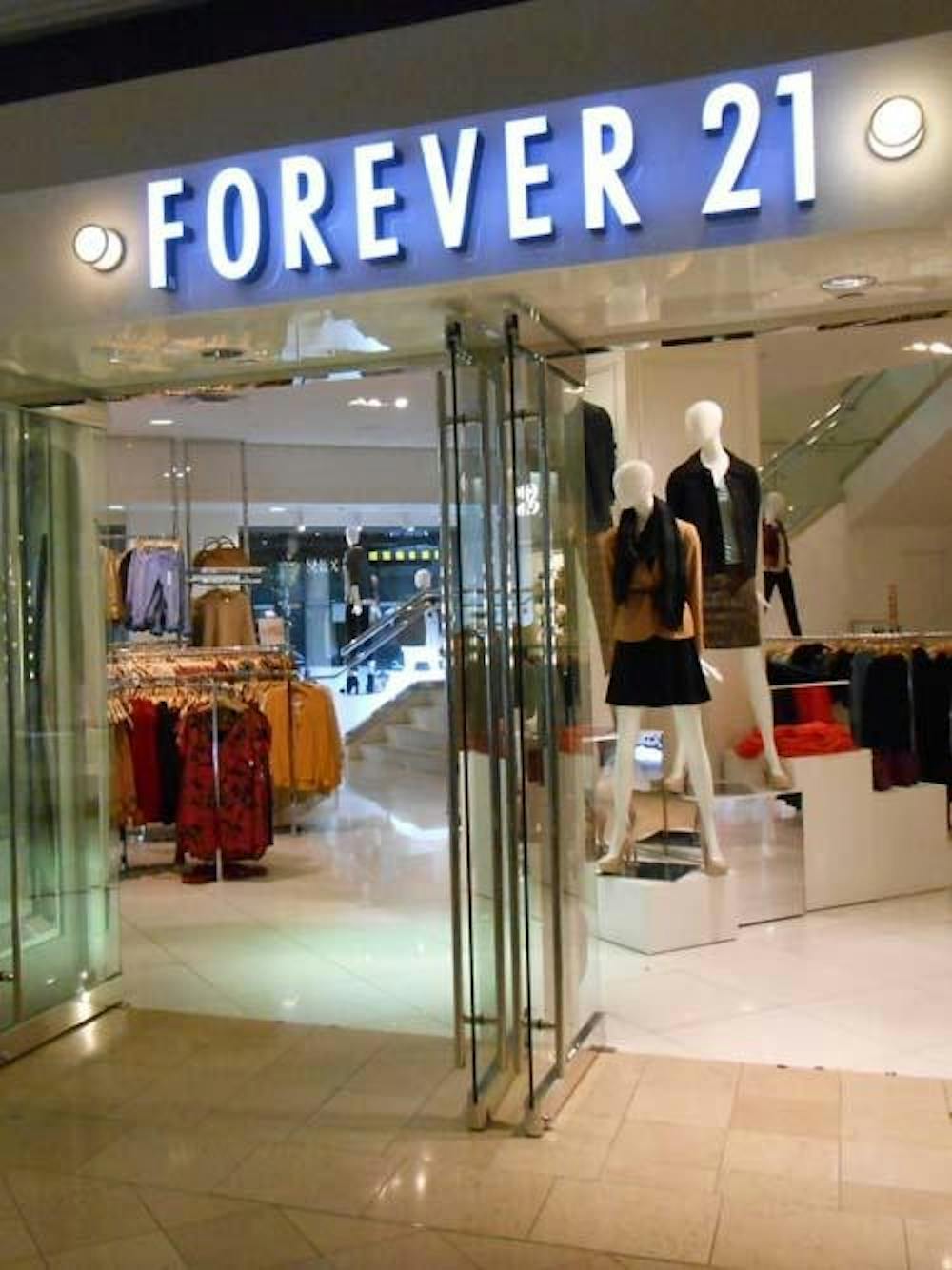Forever 21 is required by law to comply with Department of Labor investigation into wages, hours and working conditions
(Photo courtesy of Catie Sutherland)
By Hannah Kintner, Staff Writer kintner13@up.edu
The United States Department of Labor's Wage and Hour division announced earlier this month that they have filed an action to force the clothing company Forever 21 to cooperate with their investigation. The company previously refused to comply with requests to show documents about their wages and working conditions. The Department of Labor has been conducting an investigation of Forever 21 for the past four years.
Dozens of Forever 21 manufacturers operating in "sweatshop - like conditions," have been identified, and Forever 21 has been issued a subpoena, or written call to court, requesting that the company provide documentation regarding their workers' wages, hours and work conditions. According to a Dept. of Labor press release, the company has thus far refused to comply. No Forever 21 representative was available to comment.
The investigation of Forever 21 is part of an initiative to uncover unlawful practices in the Southern Californian garment industry. In the past five years, the department has conducted 1,500 investigations in the area, revealing that American clothing manufacturers have withheld over $11 million from 11,000 workers.
The Department of Labor has reported uncovering evidence of Forever 21 significantly violating the conditions of the Fair Labor Standards Act's minimum wage, overtime and record keeping requirements, leading to the "sweatshop-like conditions."
News that this is happening within American companies is disheartening to some students. Kelsey Robison, president of UP's Fair Trade Club, has not had a positive impression of Forever 21 since she heard of unethical practices carried out by them in the past.
"They do a lot of donations to charity, but that doesn't make them a good company." Robison said, "Just because you put 'John 3:16' on the bottom of your bag, that doesn't mean you're living ethically."
The Fair Trade Club aims to raise awareness of fair trade options, and calls people to consider where the products they buy are coming from. While the fair trade movement has been around for half a century, it is still not very well known.
"I hadn't heard about the Forever 21 issues at all, so I feel like if word doesn't get out it won't affect [their business]," sophomore Bronwyn Jones said. "And they have such cheap clothes, it's not just a business that people can easily be like, 'oh whatever, not going to shop their anymore.'"
Jones said the thought of an American company mistreating their workers this way was unexpected and ridiculous.
"You don't remember to think about fair trade unless companies go out of their way to specify that it's happening," Jones said.
Robison, a junior, said the best way to do guilt-free shopping is to research companies before you buy their products, or to look for a fair trade logo on the products, which guarantees ethical production of all goods. The most common fair trade logo, known as "bucket boy," can be identified as a black and white silhouette of a person carrying two buckets.
"Although, fair trade products are more expensive, when you look at a free trade product, you're not necessarily seeing the whole price," Robison said, "There are a lot of negative things going into the production of free trade items."








